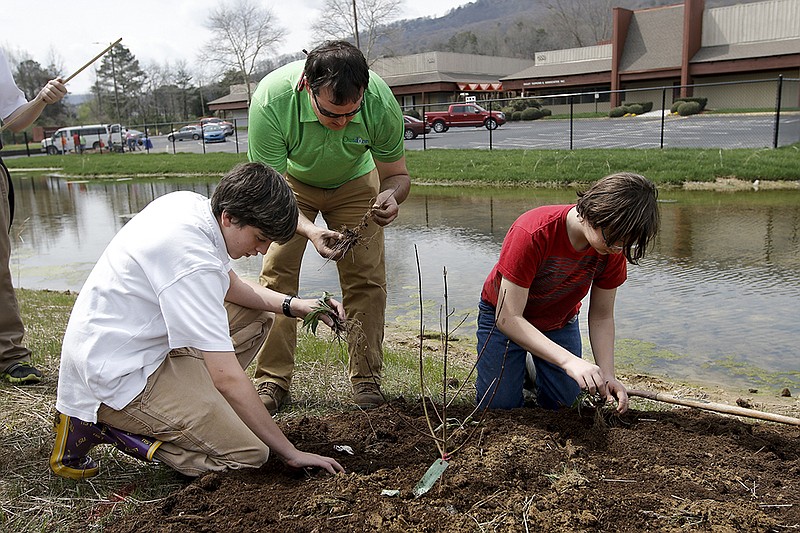Over the next few decades, Hamilton County's population is expected to grow by 400,000. The growth calls into question concerns related to housing, land, prices - and water.
What happens when rapid growth impacts groundwater, resulting in widespread flooding when it rains?
What happens when sediment from such development runs into the water, polluting it and affecting the quality of drinking water?
Water quality might not sound like the most exciting of topics, acknowledges Thrive Regional Partnership Director Bridgett Massengill, but it is a vital concern to address as a component of the regional planning initiative's growth goals. And preserving the watershed as the county's footprint continues to grow falls to everyone who relies on the water for consumption, activity and more.
Thrive, which is working with the Tennessee Aquarium Conservation Institute and other area organizations on an initiative dubbed The Watershed Moment, has highlighted natural treasures and future areas of concern within its 16-county footprint, spanning Tennessee, Alabama and Georgia.
Protecting the waterways can begin with the easiest of decisions, says Anna George, Tennessee Aquarium vice president of conservation, science and education. For instance, simply not flushing old medications down the drain can have a big impact, she says.
"The most simple choices that [people] make every day affect the quality of our water and the natural beauty that surrounds us," George says. "People all too often take for granted or don't realize it. Even if you didn't cause it, you can help to change it and turn it around. "
Those with an interest in gardening can go a little further than simply not polluting the waterways in the first place. Rain barrels, rain gardens and vegetated swales (essentially a linear rain garden) in backyards across neighborhoods can have a large impact on stormwater runoff. The city of Chattanooga's RainSmart program even offers financial reimbursement for such projects.
"Basically, urbanization and increased impervious surfaces give our stormwater fewer options of places to go," says RainSmart water quality technician Casey Clopton. "Most times, it goes untreated into our storm drains, which go directly to our water bodies."
Get paid back to pay it forward
The RainSmart reimbursement program is open to anyone within city limits, Clopton says. The process involves sending in an application, which can be found on the city's public works page, scheduling a time to assess the property and its ability to support the proposed mitigation project, selecting a city-approved landscaper to complete the project and then getting reimbursed for labor and materials used.
Using native plant species in the garden is key, Clopton notes.
RainSmart is also partnering with local sustainability nonprofit green|spaces to build a vegetated swale to capture runoff from the NextGen Homes under construction on North Chattanooga's Hamilton Avenue.
"The impact we hope to see is the reduction of stormwater runoff and also the education on stormwater issues for homeowners," she says. "The more people that understand they can help the environment - and why it is important to do so - the better."
Easy ways you can help
» Don’t put anything except water down storm drains.» Fix leaks that drip from your car and put down a liner in your driveway to collect oil and other materials, as these can easily make their way to storm drains.» Don’t pave your property, since pavement is impermeable and forces more water down the storm drains — potentially after picking up pollutants on its way to the drain.» Choose non-toxic household products whenever possible.» Avoid using pesticides or chemical fertilizers.» Don’t use soaps or cleaning products that contain triclosan, a registered pesticide.» Pick up after your pets, as the bacteria found in their waste is a contaminant.Source: Clean Water Action of California
